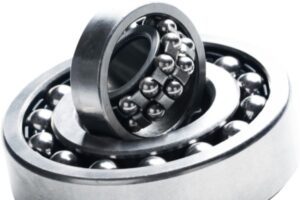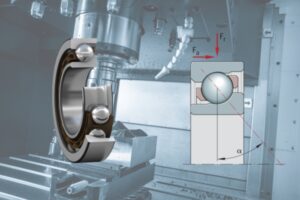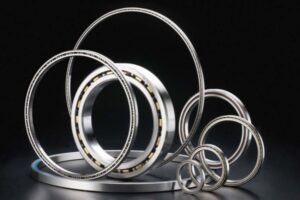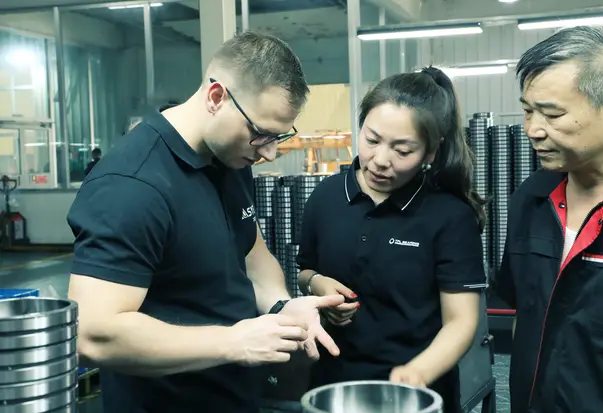Introduction
If your tools are making strange noises, it could be because your ball bearings need help. A loud bearing doesn’t always mean there is a problem, but it can be a sign of one. Wear and tear or a problem with the lubricants can cause it. This tutorial will walk you through determining the source of the sound and appropriate action to take for correction. Your bearings’ lifetime can be extended and your machinery will remain running by proper maintenance and the correct ball bearing lubricant.
What Does a Bad Ball Bearing Sound Like?
Common Noises You Might Hear
When ball bearings start making noise, it’s usually one of three sounds: grinding, squeaking, or clicking. Here’s what each sound could mean:
- Grinding: Often this results from insufficient lubrication. The metal parts frictionally rub together without grease or oil.
- Squeaking: A high-pitched squeak might mean dirt is stuck inside or the bearing is starting to wear out.
- Clicking: If you hear a clicking noise, it could mean the bearing is damaged and needs a ball bearing replacement.
Why Do These Sounds Happen?
Ball bearings are designed to reduce friction, but they can’t do their job if they’re dry, dirty, or worn out. Over time, the grease or oil inside them can break down, or dust and debris can get in and cause problems. That’s when you’ll start hearing those annoying noises.
Is It a Lubrication Problem?
Signs That Your Ball Bearings Need Lubricant
First thing to investigate if your bearings are noisy is whether they require oil. One major red alert are dry or sticky bearings. The machine can also seem overheated or not be going as smoothly as it ought.
Choosing the Best Grease for Ball Bearings
Not all grease is the same, so it’s important to pick the right one. The best grease for ball bearings depends on how you use them:
- Silicone-based grease: Great for high-speed machines because it reduces heat and friction.
- Lithium-based grease: Works well for most everyday uses and lasts a long time.
Should You Use Ball Bearing Oil or Grease?
Both ball bearing oil and grease have their pros and cons. Oil is better for high-speed setups because it flows easily and keeps things cool. Conversely, greases are excellent for slower-moving equipment and remain in place longer.

Could It Be Wear on Your Ball Bearings?
How to Check for Wear
Sometimes, no matter how much lubrication you add, the bearings still make noise. That’s when you need to inspect them for wear. Look for signs like:
- Pitting (tiny holes) on the surface.
- Cracks or rust.
- Uneven movement when you spin the bearing.
Time for a ball bearing replacement if cleaning and applying ball bearing grease does not fix the issue. Don’t wait too long to replace worn-out bearings; they can ruin your machine.

How Long Do Ball Bearings Last?
The lifespan of a ball bearing depends on how much you use it and how well you take care of it. With regular maintenance, they can last for years. But if you ignore them, they’ll wear out much faster.
How to Fix Noisy Ball Bearings
Step-by-Step Guide to Lubricating Ball Bearings
Often fixing loud bearings is only applying some oil. Here’s how to accomplish it:
- To clean dirt and old grease from the bearing, use a cloth or brush.
- Apply a small amount of ball bearing grease or oil. Don’t overdo it—too much can cause more problems.
- To equally distribute the lubrication, spin the bearing.

Tips for Extending Bearing Life
- Avoid over-lubricating, as this can attract dirt.
- Keep your workspace clean to prevent dust from getting into the bearings.
- Store spare bearings in a dry place to avoid rust.
When to Consider Ball Bearing Replacement
If your bearing still makes noise after cleaning and lubricating, replacement might be the best choice.
Signs you need a ball bearing replacement:
- Too much wear or pitting
- Constant loudness even with correct lubrication
- More opposition or erratic motion
Replacing a faulty bearing can prevent bigger problems down the line.
Conclusion
See, then? Noisy ball bearings spare you from worrying about things. You can determine whether it is a lubrication issue or wear right away. If they are dry, add some ball bearing lubrication; if they are shot, get a ball bearing replacement.
Here at TFL Bearings, we provide all you need to keep your equipment quiet and operating. Looking to permanently silence the noise? You won’t regret it if you swing by our website and pick some really great bearings or grease right now!
Popular Related Questions and Answers
What happens if you don’t lubricate ball bearings?
Without lubrication, ball bearings wear out quickly due to friction and heat buildup. This can lead to increased noise, rough operation, and early failure.
Can you use WD-40 on ball bearings?
No, WD-40 is not a proper ball bearing lubricant. It evaporates quickly and doesn’t provide lasting protection. Use ball bearing oil or ball bearing grease instead.
What’s the difference between ball bearing oil and grease?
Ball bearing oil is thin and good for high-speed applications, while ball bearing grease is thicker and stays in place longer, making it better for heavy loads.
Why do my ball bearings make a grinding noise? A grinding noise usually means there’s not enough lubrication. Adding ball bearing lube can solve this issue.
How do I stop my bearings from making noise?
Add fresh ball bearing lubricant if they’re dry. If that doesn’t work, replace them with new ones.





